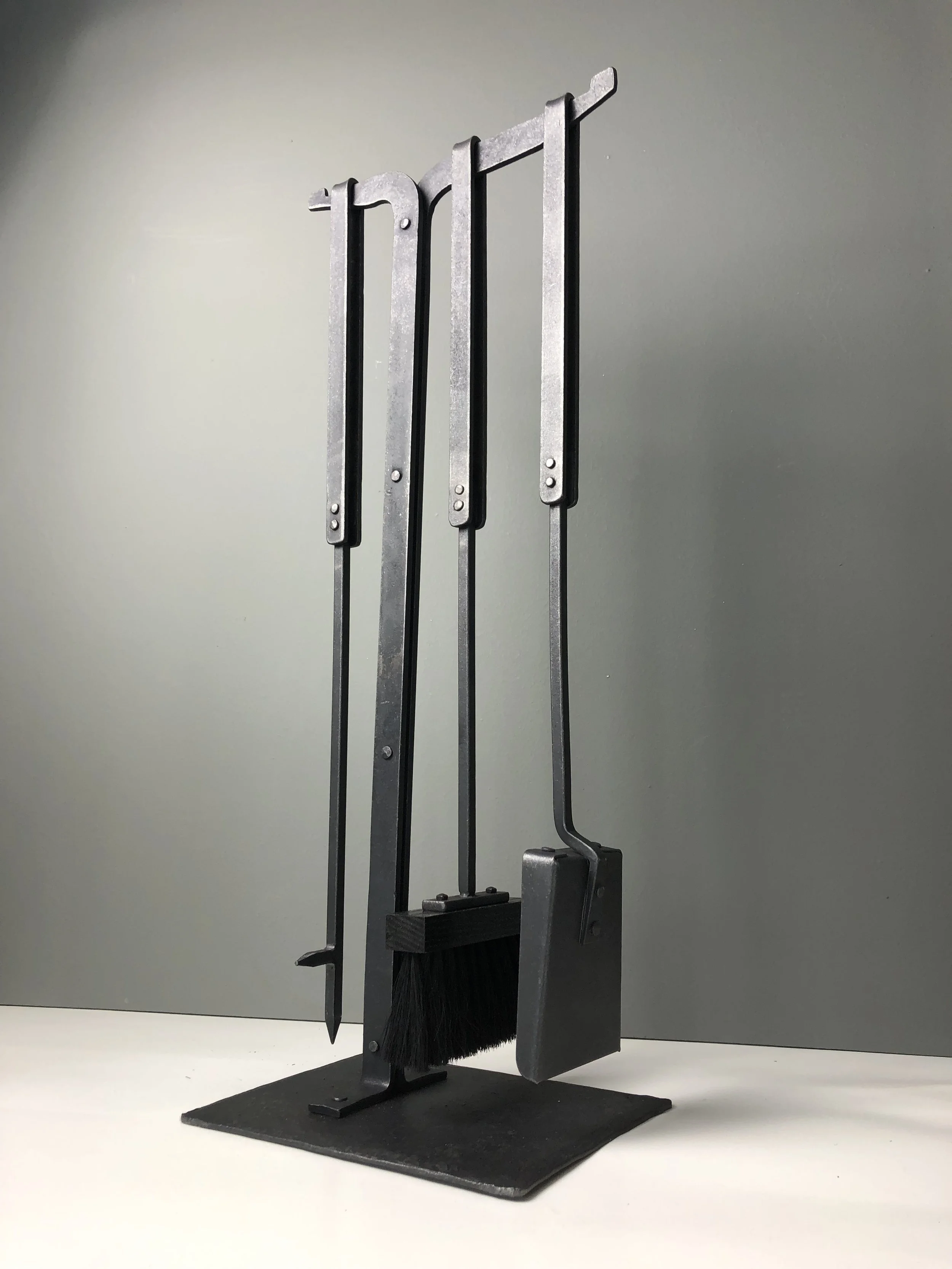Matt Jenkins
Saint Andrews, Man.
Matt Jenkins, 2019. Photo: Darcy Finley
Studio: How would you describe your approach to your medium? What made you choose it?
Matt Jenkins: Blacksmiths are lucky in comparison to other crafts. Steel is relatively inexpensive and ubiquitous. The price of the material is why blacksmithing ultimately won out over other interests of mine. The low price point allows me to design independently of the material and be risky when playing with new tools and techniques.
Matt Jenkins, Natural Nouveau, 2018. Forged Steel, 30.5 x 102 x 6 cm. COURTESY OF CLOVERDALE FORGE.
S: How would you describe yourself, personally and professionally?
MJ: Curious.
I am constantly researching new techniques and tools- which are most likely old methods and implements that society has momentarily forgotten.
In the last thirty years, accessibility to information on blacksmithing has changed considerably. When I started blacksmithing, I had to hunt for books, tools, and others interested in the craft. This introduction made me tenacious when searching for information about metalworking and crafts. There is a vast cultural catalog of artifacts and learnings in out-of-print books and forgotten articles from trade publications that need to be rediscovered.
Matt Jenkins, Brackets, 2023. Forged Steel, 15 x 15 x 5 cm. COURTESY OF CLOVERDALE FORGE.
S: What inspires you?
MJ: The material inspires me daily; I experience steel going from a solid inorganic material to malleable matter while forging. It is magical - the chance to squish, smash, and smoosh only happens within a specific temperature range for a limited time but then returns to its hardened solid state. The ability to unlock the potential by adding heat and pressure to the material intrigues me every time I light up the forge.
Matt Jenkins, Contour Tools with Stand, 2022. Forged Steel, 69 x 25 x 20 cm. COURTESY OF CLOVERDALE FORGE.
S: What do you see as your contribution to the field of your craft?
MJ: I was lucky to spend a few years at the John C. Campbell Folk School in Western North Carolina during my 20s. While there, I was exposed to an array of instructors open to sharing their knowledge and passion for the craft. I see myself carrying on this tradition in person and online. By passing along the tricks, techniques, and tooling, I have acquired over the last 20+ years.
Matt Jenkins, Grasslands Railing (detail), 2018. Forged Steel. COURTESY OF CLOVERDALE FORGE.
S: What wisdom do you want to impart to younger makers?
MJ: When I started hammering, a mentor told me, “Never trust a blacksmith with a small scrap pile.” I laughed at the time, but over the years, I realized he succinctly summed up the following lessons: Embrace failure! Make mistakes! Take risks!
As with all handcrafts, blacksmithing takes a lifetime of learning, so strive to do your best work with your current skills! Work you are so proud of today; you will see in the future and appreciate the lessons learned while forging on that project. Ultimately, being a maker is about embracing creativity, curiosity, and perseverance.
Matt Jenkins l Cloverdale Forge
instagram: @cloverdaleforge
website: cloverdaleforge.com
This article was published in the Spring/Summer 2024 issue of Studio Magazine.











